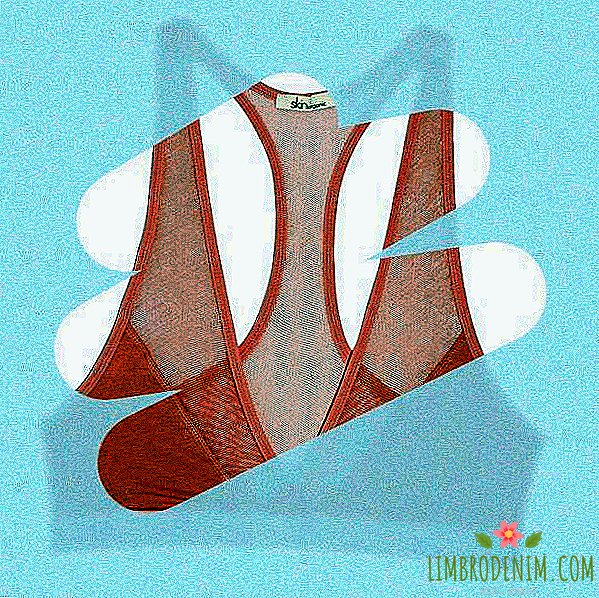How I learned to live with bipolar disorder
One of the important steps on the way to destigmatization of mental diseases - open and honest talk about the problem. Maria Pushkina told us about life with bipolar disorder, difficulties in making a diagnosis and the specifics of life with the disease in Russia.
Bipolar disorder (BAR) is a disease in which a calm state alternates with periods of increased activity and mood (manic episodes) and periods of depression, loss of strength (depressive episodes). The former name of this phenomenon - manic-depressive psychosis - modern physicians consider it not quite correct. Phases alternate in all people in different ways and are expressed in varying degrees. There are bar types I and II. In type I BAR, mania is pronounced - an extreme degree of nervous excitement, including loss of self-control and connection with reality. In this state, a person is able to claim himself as a prophet, a carrier of secret knowledge and throw himself into any adventure. Type II BAR is distinguished by the fact that a person does not develop real mania, and there are hypomanias — episodes of elevated, even euphoric, mood. But phases of depression prevail, they can last for months and even years.

About BAR type II, I know from experience. From childhood I understood that something was wrong with me, and I always suffered from sudden mood swings. Like many, everything manifested itself during the teenage years against the background of a hormonal shift. I remember my childhood as absolutely happy, cloudless - and literally at one point it ended. I almost plunged into a sad teenage depression for almost four years.
It seemed to me that I was seriously ill. I hated myself and others, I felt the most insignificant, worthless creature. All this was aggravated by the collapse of the forces, when not that running a cross - to reach the school in the morning was a difficult ordeal. At that time I was not friends with anyone and talked only with books and heroes of the serials about murders. Some precursors of this, probably, were before. I remember well that my first suicide plan came up at 9 years old. At the age of 12-14, I woke up and fell asleep with such thoughts. If the life of an ordinary person is more or less like a straight line (childhood, adolescence, adulthood), then the life of a bipolar is a roller coaster, on which you move in a circle. In hypomania, you turn into an eternal teenager who craves adventure on his head; he cannot sit still for a minute. In depression, you feel like a frail old man whose brains and body rust.

My first depression was over, too, as if by a click: closer to the age of 16, I once woke up with a smile all over my face and realized that I wanted to run, laugh, talk. Life instantly became superactive and intense, it seemed to me everything was on the shoulder. I felt in constant flight and sometimes moved and spoke so quickly that my friends asked: "Are you on aids?"
I studied, worked, was a volunteer, continuously traveled. I slept then at best for six hours, unable to stop, slow down the whirlwind of thoughts and plans in my head. Once I was on a completely insane Arctic expedition on bicycles for a whole month: there I ran with an 18-kilogram backpack over my shoulder, overtaking healthy men.

I had a couple of nervous breakdowns. Once I yelled at the boss, because of what I was expelled from the project. At that moment, when I left my city to conquer Petersburg, my body began to fail me. At 22, I was again the most miserable person in the world, exhausted, depressed, without plans and ambitions. Work turned into hard labor, just to make a call, you had to persuade yourself for an hour. I became constantly ill, the doctors talked about the fall in immunity. It was physically difficult to think and write, I could not concentrate on anything, I forgot English and even Russian words. I successfully survived this period thanks to the support of the beloved man who took care of me: he brought food, took his hand for a walk, looked for doctors.
Further ups and downs were repeated. I tried to figure out what was happening to me, I communicated with several psychotherapists. They were all cool, modern, well-educated, but only one realized that what was happening to me went beyond the boundaries of the complexes and children's injuries. This is a serious drawback of many specialists - the belief that psychotherapy can cure everything without any drugs.

I picked up drugs for a long time and painfully. I felt like Alice in Wonderland - you never know what kind of person you wake up in the morning
Finally, my last psychotherapist said: "You know, you have signs of depression. I would advise you to meet with a psychiatrist." I was shocked. My self-image radically diverged from the picture of depression. I used to think of myself as an active, cheerful person, who was prevented from spreading his wings.
The first psychiatrist I went to was a private doctor and took it anonymously. I would not risk going to the state dispensary, where your symptoms will be recorded and preserved forever. If you are registered, the diagnosis can then prevent you from getting a job, getting rights - how little else can your state misuse your knowledge about you? The doctor concluded that my depression developed due to repressed negative emotions. She assigned me a minimum dose of mood stabilizer and recommended that the psychotherapist deal with these very emotions.
It did not help, I was getting worse. I slept for eleven o'clock and woke up with a splitting head and trembling in my hands. In the evenings, I could only lie on the couch and cry. All this was accompanied by high anxiety and social phobia: I began to shy away from people, I was frightened by the crowd in the subway and cars passing by. At some point, I was scared to answer calls and even open messages on Facebook. I spent all my strength on going to work and pretending that I was fine.

I realized that among psychiatrists there are two warring camps: "old school", who will find a pill for each symptom, and "advanced", who believes that antidepressants are harmful because they do not eliminate the psychological causes of the problem, but only remove the symptoms. Accordingly, the former believe that BAR is a congenital defect in the balance of hormones, which can only be corrected chemically. The latter do not believe that this is a congenital disease, but believe in psychotherapy.
As a result, I turned to a state doctor (this, in principle, can also be done anonymously) with a Soviet education. By the time I read a lot about affective disorders and I myself realized that my problem is not only in depression. An insightful elderly doctor diagnosed me with a "BAR Type II" literally at first sight. She prescribed stronger medicines and warned that it is only harmful from psychotherapy in this state: digging up negative experiences from the past can be even more traumatic.
I do not want to say that psychotherapy with BAR does not help. Bipolar disorder is an insufficiently studied disease, it is still argued about the causes of its occurrence. I know stories where the causes of the disorder (for example, raising mentally unbalanced parents) could be worked through with psychotherapy. Over time, psychotherapy also helped me, first of all, to learn to accept myself along with shortcomings, not to feel guilty and inferior due to illness. The main thing - to find "your" therapist, with whom you will speak the same language.

I picked up drugs for a long time and painfully. They have a lot of side effects: sometimes insomnia, then, on the contrary, lethargy and loss of attention, vision problems, skin rashes ... I felt like Alice in Wonderland - you never know what kind of person you wake up in the morning. Bipolar disorder is difficult to treat because completely different drugs are needed for mania and depression, and the phases are replaced unpredictably. Type II BAR, as in my case, is often confused with depression, because they usually do not complain about the symptoms of hypomania, until a certain point they are only encouraging - this is a continuous drive!
At the same time, if the BAR is treated only with antidepressants, the result can be deplorable: depression will eventually turn into mania, and mania can accelerate to a complete loss of control and psychosis. The shocking book "Fast Girl" tells about this: its author, an Olympic athlete, decided to go into prostitution amid mania.
I did not immediately realize that in order to feel better, the lifestyle must be changed. The first thing I did after the diagnosis was that I took a lot of money on credit and went to a tropical resort, where I hung out in clubs and soothed my nerves with alcohol. I didn’t think then that I would have to pay debts a year later, but thought about the need to immediately escape from this despondency and dullness. Spree and waste is a very typical behavior for bipolar. But another depression inevitably followed the celebration of life, and I had to draw conclusions.

In fact, I still have not come to terms with the fact that I have many limitations in my life. My condition is not perfect even now, although I do not lose hope that it will become better. Unfortunately, bipolar disorder is a lifelong, you can only a little equalize mood swings and adapt your lifestyle to them. If left untreated, it gets worse with age: depression will be more and more severe. I, in general, was lucky. About half of people with BAR cannot fully work and are not able to start a family; many have attempted suicides and months in psychiatric clinics. The other half copes with all social functions, only this is given to them harder than others.
In depression it is very difficult to work. About half a year I could not do almost anything meaningful. It is important to reduce the number of cases to a minimum, not to bury ourselves under a mountain of duties. But at the same time it is impossible to completely throw away everything: the sofa way of life will finish you completely. The biggest illusion of depression is that external circumstances are to blame for your condition: the husband doesn’t like, they don’t appreciate work, the country is a mess. It is necessary to throw all the old, for example, go to the edge of the world, and life will get better. I threw a lot and left three times; it helps, but very briefly. Over time, all the same unsolved problems are piling on you. In the phase of hypomania, it is easy to break the wood and spoil relations with relatives and colleagues. You need to learn to slow down and relax. Yoga helps a lot.
The rules of a bipolar life are quite simple, they fit into the hackneyed concept of a healthy lifestyle: to comply with the regime, to give up alcohol and other doping, to play sports, to sleep at night. And you need to take care of yourself: do not overwork, avoid unnecessary stress. The storms of passion and the bohemian way of life are not for you, although the bipolar soul requires just that. I began to limit myself to my hobbies. Previously, if I liked some business, I plunged into it with my head, I could not eat or sleep. Now I understand that constant tension loosens the psyche. It is useful to keep a diary to streamline thoughts and experiences. It is necessary to have a mood scale - a sign in which you record your mood and medications taken. It is important to accurately understand how the disease develops over time and how effective the treatment is.
In Western culture, bipolar disorder has been widely discussed since the 80s. Many famous people openly talk about their fight against the disease, and it is very supportive. First of all, it is dearly loved by my beloved Stephen Fry, who made a film about his life with BAR, "Stephen Fry: The Secret Life of the Manic Depressive", and also Catherine Zeta-Jones and Jeremy Brett. By the way, Kurt Cobain's song "Lithium" is also about bipolar disorder: BAR Type I is treated with lithium. I am glad that bright characters with bipolar disorder appear in popular TV shows, such as Carrie from Motherland, Ian and his mother from Shameless, Silver from Beverly Hills 90210: The New Generation.

Due to lack of information about the bar you can not understand what is happening to you, you feel damned
I was very much supported by reading books written by people with bipolar disorder, where they tell how to cope with the disease, how they feel. A positive example is needed to believe that you are not doomed, you can handle it. Must read - books by Kay Jamison, a famous American psychiatrist, who, during the heyday of her career, realized that she herself was suffering from bipolar disorder. The disease did not prevent her from changing the world for the better: open a clinic for the treatment of BAR, conduct research, write books that have become bestsellers, primarily the autobiography "An Unquiet Mind: A Memoir of Moods and Madness", and also "Touched with Fire" - an impressive study of the connection between BAR and creative abilities (many brilliant people suffered from this disease, psychiatrists suspect Marina Tsvetaeva and Vladimir Vysotsky are bipolar). Unfortunately, not a single popular and accessible to the general reader book on the bar is translated into Russian. I want to fill this gap and have practically translated "An Unquiet Mind"; Now I think how to publish it. By the way, a film about bipolar disorder "Touched with Fire" with Katie Holmes in the lead role, just named after the book, has just been released; I really hope that he will get to Russia.
In Russia, for patients with BAR, the main difficulty is that no one knows what the disease is and what to do with it. As, however, with other psychiatric problems: people imagine the terrible and think that it is dangerous for others. Due to lack of information you cannot understand what is going on with you, you feel damned. In fact, around you every day walks a lot of quite nice characters with psychopathy, chronic depression or obsessive-compulsive disorder. If they know their own characteristics and are able to control them, they are no different from other people. I think in Russia, in the mass, mental problems “hide” behind alcohol addiction: alcohol is an affordable “medicine” by which people try to keep afloat.
There is a lot of talk in the British press that mental problems should be treated the same way as any other health problems, such as a stomach ulcer or asthma: you are a full member of society, but you have limitations. This approach is still far from Russian realities. You can't take sick leave due to depression. You can not speak out loud about your problems, being afraid of being rejected, lose your job. People shy away from psychiatrists and are left alone with their problem, it is rather difficult to find a competent specialist specialist. Almost no literature in Russian, no support groups. There are a couple of communities in social networks, but they really lack experts.
I want to make my own contribution to making the situation in my country better. As a good translator, I translate and post interesting articles and books about the BAR into the network. In plans - to develop a profile site about the bar and create a support group. And I'm looking for like-minded people.





